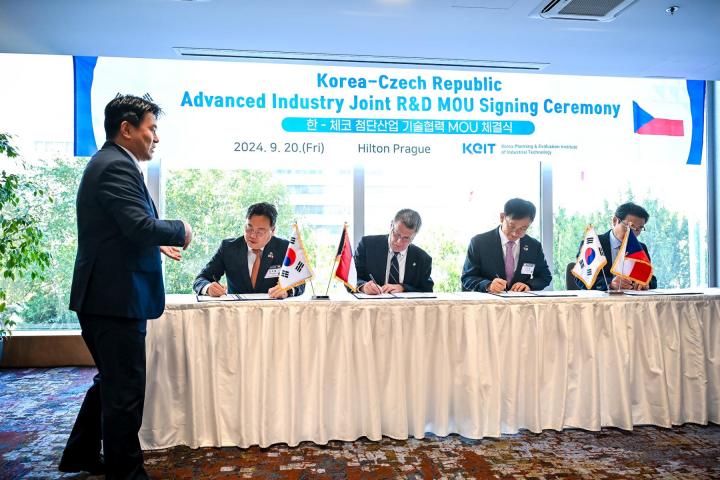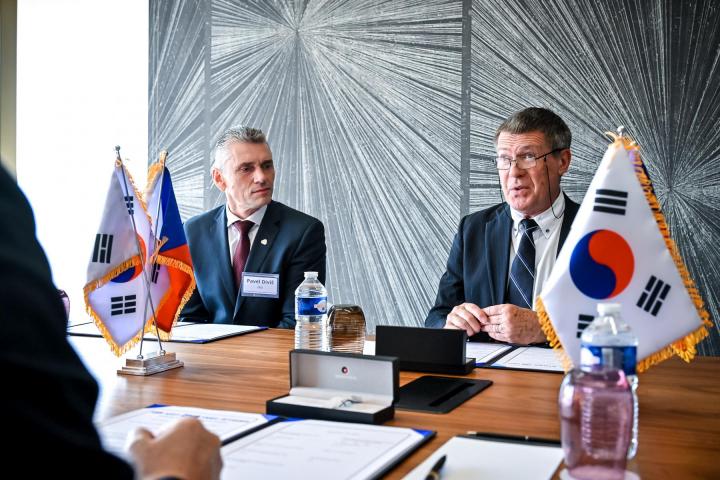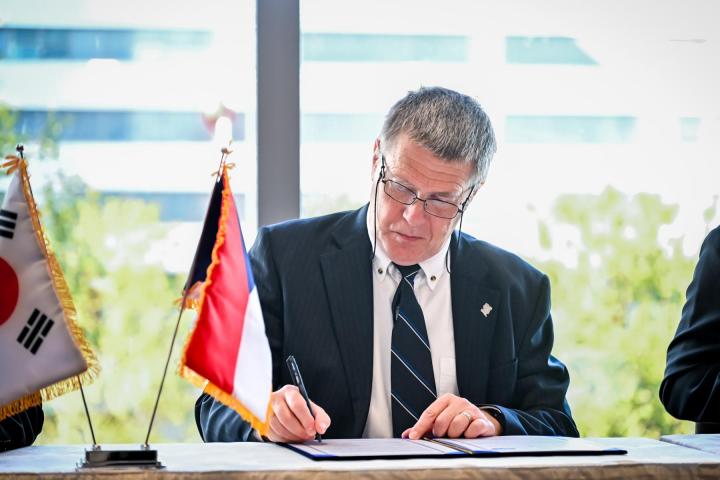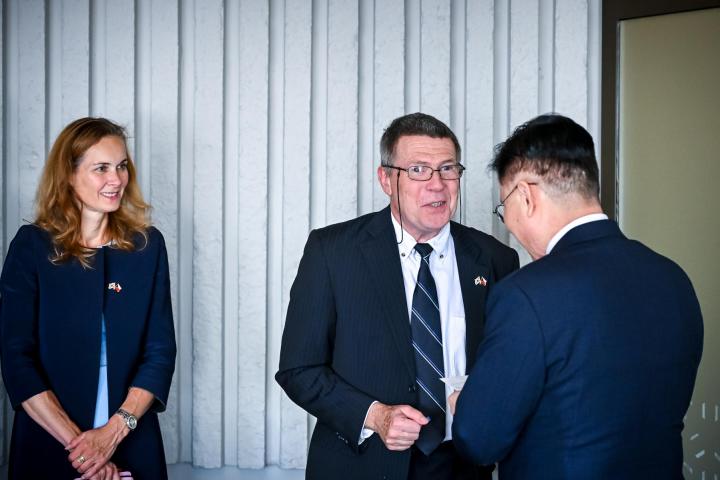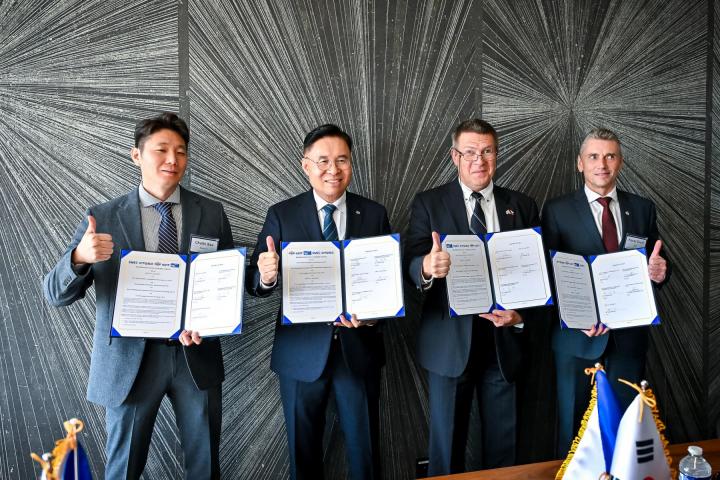The Korea Institute of Energy Research (KIER) has agreed in a memorandum with CTU to coordinate joint research and also to exchange scientists on both sides as part of a broader sharing of knowledge. This involves cooperation in the field of batteries and renewable energy, especially photovoltaics. The research of the Centre for Advanced Photovoltaics and other scientists at CTU Faculty of Electrical Engineering, who focus on computational simulation and design of 2D materials for solar cells, will contribute significantly to this. Experts at the faculty are working on the implementation of new materials, the development of low-cost solar cells, the use of solar energy in microgrids, the degradation of photovoltaic cells, batteries and their testing, community energy, and the storage and use of electricity.
Thanks to the previous cooperation with the Koreans, Faculty of Mechanical Engineering cooperates under the second memorandum. The Asian partners in this case are the Korea Institute of Machinery and Materials (KIMM), SMEC Co., Ltd (SMEC) and TGS Tools-Machines-Technological Services Spol. s.r.o. (TGS), on the Czech side it is the Research Centre for Manufacturing Technologies (RCMT) of Faculty of Mechanical Engineering. This is a leading research group in the field of machine tools and process digital twins, with cutting-edge expertise in simulation-based intelligent machining of turbine parts. Since 2014, KIMM (Korea Institute of Machinery and Materials) and RCMT have been collaborating in the field of machine tools and extending this partnership to industrial applications.
"This cooperation is expected to help SMEC, a leading Korean company in the field of machine tools, to expand its knowledge in the field of turbine blade machining and repair equipment," says Ladislav Lašek from CTU Faculty of Mechanical Engineering.
The specific topics of CTU's involvement in the project are process digital twin machines for digital support of machine development and process planning and advanced models of machine thermal behaviour and temperature error compensation. The signing of the Memorandum demonstrates the interest in further deepening the cooperation, to which the RCMT of Faculty of Mechanical Engineering brings unique knowledge and experience in the development of advanced digital tools and the development of intelligent machining and manufacturing concepts.
These two memorandums were signed today around noon at the Hilton and President hotels in Prague, on behalf of the Rector by CTU Vice-Rector Zbynek Škvor, who also attended the welcome of the Korean President at Prague Castle yesterday. "Developing international cooperation with top centres of education and research institutes, as well as successful companies, fits into the long-term strategy of CTU. International cooperation and sharing experiences for our scientists and students is one of the university's priorities, thanks to which we can boldly rank among the elite technical universities in the world," said Vice-Rector Škvor.
The third document will be signed at the President Hotel today in the evening.Its aim is mutual support in research activities in the field of robotics, exchange of information - sharing know-how, mutual visits of scientists or organization of conferences and technology seminars, in cooperation between CTU and Korea Planning & Evaluation Institute of Industrial Technology (KEIT), Korea Electronics Technology Institute (KETI) and Korea Institute for Robot Industry Advancement (KIRIA).
Scientists from Faculty of Electrical Engineering and the Czech Institute of Informatics, Robotics and Cybernetics have been working for a long time on the development of robots that can be used during the intervention of firefighters and rescuers during crisis situations in hard-to-reach places or for the control of large industrial installations such as substations, factories or pipelines. "Many mobile robots have a robotic arm that allows them to grasp objects and interact with their surroundings. At the same time, it can also look into places inaccessible to humans with a camera. For example, we used the SPOT robot with a robotic arm to explore Prague's underground in 2022, when we made a 3D map and tested how signal transmission works underground," says Prof. Tomáš Svoboda, Vice Dean for Development at CTU FEL .
The research of roboticists from CTU FEL and CTU CIIRC is also used in industrial production, where robots help, for example, to determine the properties of objects important for the method of handling. Using artificial intelligence (advanced machine learning methods), experts from CTU are investigating how to teach robots to adapt learned procedures in a changing dynamic environment and to work safely in the vicinity of humans.
In addition to these "Prague" documents, today CTU - represented by Vice-Rector Radek Holý - signed a memorandum on cooperation in the field of semiconductor development with the University of West Bohemia in Pilsen and the Brno University of Technology. The partnership of the three Czech universities follows the National Semiconductor Strategy.
